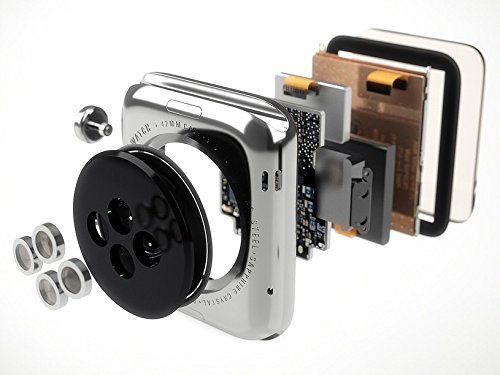Watches once held appeal, with various ways to personalize and make them your own. While not feature-heavy, the watches served a simple purpose: to tell time. Then, came the rise of the smart phone, which caused watches to fade further and further into the background as phones became feature-rich, while watches continued to hold their singular function.
Companies like Apple and Samsung are trying to bring watches back to the forefront, by giving them smartphone-like functionality. These “smart-watches” have certainly caught the eyes of consumers, but the question still remains: What makes them worth their hefty price tag?
Last year, Apple unveiled the Apple Watch, a companion device to the iPhone. Apple Watches were intended to push the functionality of the watch further, giving it a phone-like interface and applications. One of its main draws was the variety of health tracking applications where the watch can track its wearer’s heart rate or act as a pedometer. The watch can perform actions much like a smart phone letting its user send tweets, texts and make calls. Despite these features, many reviewers found the watch to be lacking.
Scott Stein from CNET stated in his review, “The Apple Watch is the most ambitious, well-constructed smartwatch ever seen, but first-gen shortfalls make it feel more like a fashionable toy than a necessary tool.” These feelings came up in several other publications, such as Engadget, who called the watch “more a status symbol than wearable revolutionary.” Both publications enjoyed what the watch could do, but cited its poor battery life, high price ranges for the different models and criticized the fact that an iPhone was required to take advantage of the Apple Watch’s features.
In 2014, Samsung released its own smart-watch, known as Gear S. The smart-watch works similarly to the Apple Watch requiring the user to have a Samsung phone for certain features. The watch had a much cheaper price range, better battery life and could stay connected to Wi-Fi without the use of a phone. These features didn’t save the device from being harshly criticized. Stein in his review of the Gear S said, “…the software and apps available don’t let it do as much as you’d expect.”
Samsung has plans to release a new version, simply named Gear S2, to address these complaints. Gear S2 will include a longer lasting battery, reported by Fortune to “last up to two or three days.” It seems as though Samsung has taken notes from Apple’s template with the watch now sporting rounded app icons, voice recognition software and a fitness tracking application.
Why do those without wearable tech not already have one? These smart-watches are feature rich, stylish and perform very similarly to smartphones. In a way, there lies the answer: they perform similarly to smartphones. Last year, The New Yorker published a piece on smart watches, stating, “people aren’t going to buy smart watches unless they do something that existing devices, like smartphones or fitness trackers, don’t do—or in any case, unless they do it better.” This makes perfect sense; consumers are less inclined to buy something they already have.
Smart-watches have had trouble gaining and keeping momentum. Through changes to firmware and functionality, Apple and Samsung may be able trying to get these devices on the consumers’ wrists, but it seems likely, these devices are dead on arrival.







